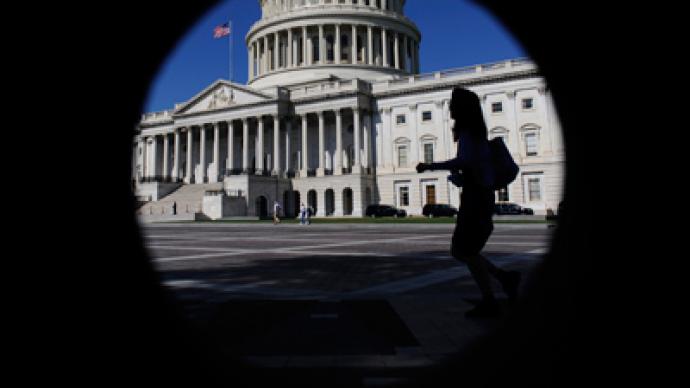An intelligence bill has put the frighteners on EU citizens as it allows the US access to their personal data stored in internet clouds like those used on Facebook and Google. The law is a ‘grave risk’ to the rights of EU citizens, says an EU report.
The amendments to Foreign Intelligence Surveillance Act (FISA) was signed into law by President Barack Obama on Monday.US lawmakers passed a five-year extension to 2008 amendments of the FISA at the end of December, allowing the US to keep tabs on phone calls and emails in and out of the country by US citizens.However, a new EU study entitled ‘Fighting Cyber Crime and Protecting Privacy in the Cloud’ states the real threat lies in the US monitoring of information stored in US-owned public data clouds. The report writes that the legislation has “strong implications for EU fundamental rights” because it allows the US to lawfully extract any information from the clouds without any prior warning or consultation.All data in the US clouds “becomes liable to mass-surveillance – for purposes of furthering the foreign affairs,” writes the document.“FISAA [Foreign Intelligence Surveillance Ammendment Act] can be seen as a categorically much graver risk to EU data sovereignty than other laws hitherto considered by EU policy-makers,” notes the report.In essence, at the behest of a secret government order US companies operating in the EU will be obliged to hand over data on European citizens. Non-American citizens dwelling outside the US are not subject to the search and seizure protections of the Fourth Amendment, and as such are easy picking for American snooping.The report concludes that EU citizens should be warned that the information will be freely accessible to the US authorities and calls for EU citizens to be given the same rights as US citizens in American courts. Additionally, it recommends that privacy violations of data cloud information should constitute a cyber crime.The report’s co-author, Caspar Bowden, former chief privacy advisor to Microsoft Europe told news site slate.com that the lack of attention paid to the bill by EU authorities was “shocking.”“It's like putting a mind control drug in the water supply, which only affects non-Americans,” said Bowden, adding that FISAA was “carte blanche for anything that furthers US foreign policy interests,” including the “continuous mass-surveillance of ordinary lawful democratic political activities.”‘Warrantless eavesdropping’The originally passing of the FISAA in 2008 set a precedent for conducting wiretapping of communication going out of the US without a warrant.Many civil liberties groups in the US have argued that it goes against amendments in the US constitution that protect Americans from "unreasonable searches and seizures" without “probable cause.”Tensions have been simmering for some time over the compromising of EU sovereignty by US legislation. Sophia in 't Veld, vice-chair of the European Parliament’s Committee on Civil Liberties, Justice and Home Affairs says that EU lawmakers are turning a “blind eye” to the issue, either because they do not fully understand it or “they are afraid to stand up to US authority.”


